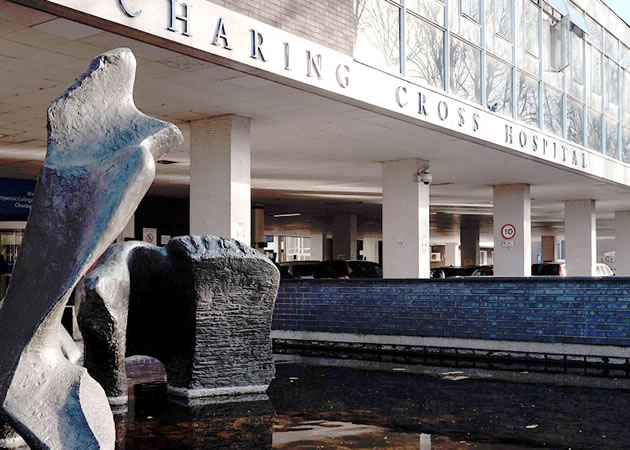'Major Cuts to Patient Care Imminent' After Huge Deficit Revealed
Sharp increase in use of emergency departments leads to £112m overspend

It has been revealed financial deficits in the local NHS are much larger than originally thought with a £112m overspend likely in the current year.
Hammersmith MP Andy Slaughter says the size of the deficit means that major cuts to patient care are imminent.
In a letter signed by Mark Easton, Chief Officer of the NW London Collaboration of Clinical Commissioning Groups (CCG) and Lesley Watts, the CEO of Chelsea and Westminster Hospital NHS Foundation Trust it is revealed that the North West London CCG which includes Ealing, Hammersmith & Fulham and Hounslow was originally anticipating a deficit of £51m in the 2019/2020 financial year. However just four months into the year the overspend is now expected to be an additional £61m.
The biggest driver of increased costs is said to be unscheduled care which has led to a significant increase in activity in emergency departments. Up until this year performance was similar to other areas in London but a sharp increase in unplanned care has been the primary cause of the bigger than expected deficit. NHS managers will be looking at how they might better direct patients to more appropriate care settings.
Other factors include the demand for hospital care outstripping population growth since 2015. While the population has risen by just 5% in that period, demand for services is up by 18% with unplanned care rising by 25% Although funding allocations have increased the demand for services has outstripped this funding.
A lack of standardisation and efficiency across services is also blamed for variations in the quality and cost of care.
What are described as ‘challenging estate issues’ and a lack of capital funding combined with the failure to progress with the Shaping a Healthier Future program are also cited. The latter ended up costing over £80million in fees before being abandoned.
Staff costs have also risen with an increase in payroll of 9% and rises due to pay increases and the new junior doctor contract.
A plan is to be implement to ‘make sure that our services are clinically and financially robust’. They aim to reduce waste and duplication and standardise clinical services and rationalise back office functions.
The focus will be on the London North West University Health Care Trust where they say the challenges are greatest. This covers the Ealing, Brent and Harrow areas.
New policies are to be put in place to reduce outpatient referrals with the aim of significantly reducing consultant to consultant referrals which make up 20% of the £250mn spent on outpatients.
More effort also going to be made to target reductions in the costs of OTC medicines which are available at low cost pharmacies and supermarkets. The contracts for patient transport are to be reviewed. Currently £24m is paid which is described as high cost and it is said there are opportunities to bring down costs by standardising assessments.
The number of elective work referred outside the Trust area is to be reduced. Bring this work back in house will save 30% on fees.
Procurement changes for home oxygen supply and enteral feeds are also to be looked at to reduce cost without a reduction in quality of service.
September 5, 2019